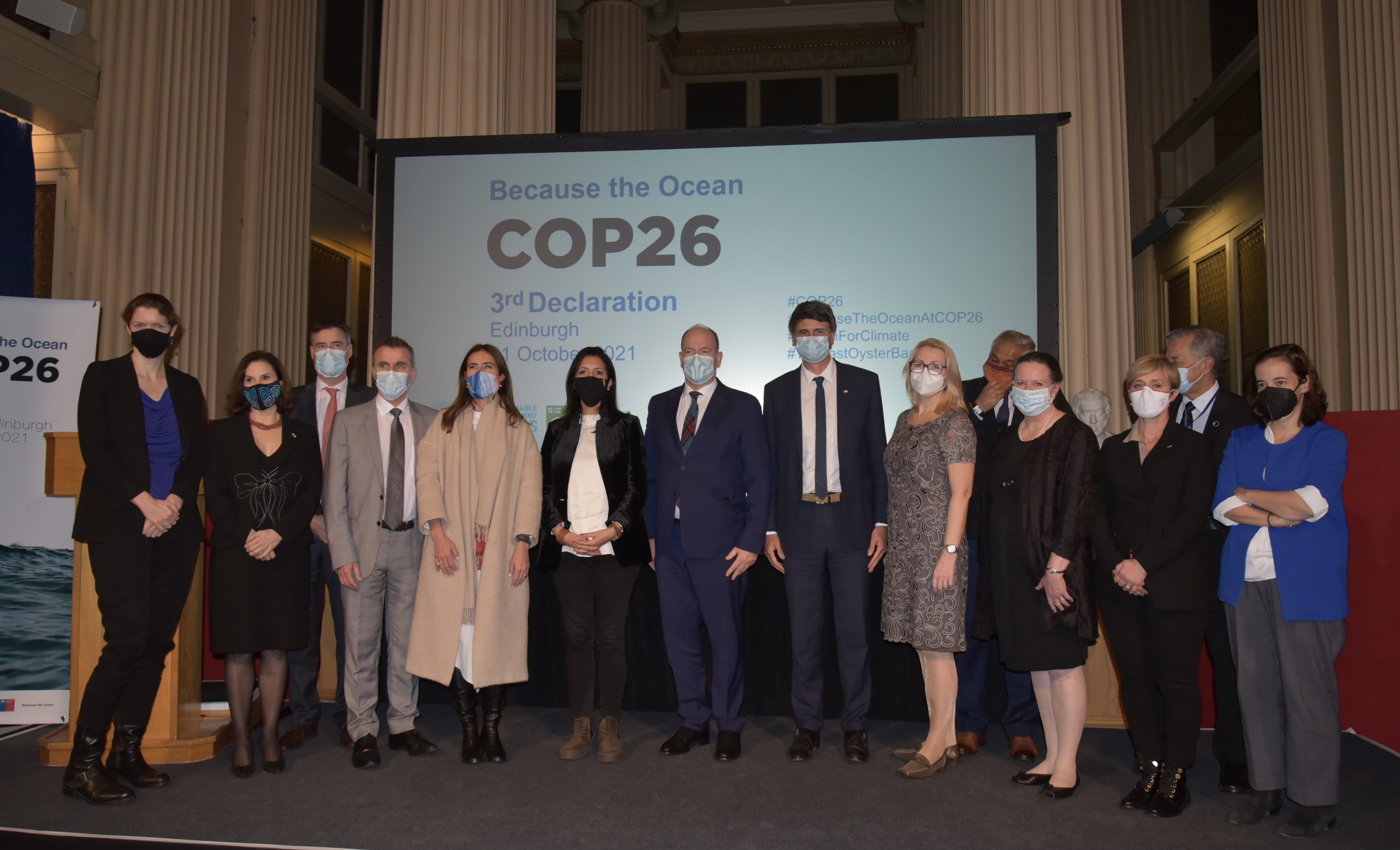Because the Ocean
First published on
November 05, 2021
by Shailendra Yashwant
In the hallowed halls of the Playfair library of Edinburgh University, HSH Prince Albert II of Monaco highlighted the essential role the ocean plays in climate regulation by absorbing more than 25 per cent of CO2 emissions and 90 per cent of the excess heat due to global warming.
Addressing an august assembly of ministers and ambassadors gathered to launch the third ‘Because the Ocean’ declaration, Prince Albert stressed, “We need to explore the role of the ocean fully and increase our knowledge of it. To develop conservation tools, to strengthen the resources employed to promote it, to improve its governance and to take greater account of ocean issues at all UN negotiations.”He also referenced the impacts on marine life caused by warming ocean waters, changes in ocean currents, and ocean acidification, as well as the effects of sea level rise on coastal environments, and the growing number of ocean-related extreme weather events.
The ocean is often described as the engine room of the climate system.The 'Because the Ocean' declaration – described as “a plurilateral initiative in support of a multilateral ocean outcome at COP26” – calls for the adoption of a COP26 decision encouraging all Parties to the UN Climate Convention, to integrate ocean-climate-biodiversity linkages in their plans to implement the Paris Agreement, and to recognise the need for more ambition on all sides to tackle climate change and protect the ocean.

The 'Because the Ocean' initiative was launched by 23 countries at COP21 in Paris in November 2015. These countries all signed the first 'Because the Ocean' Declaration, which supported a proposed Special Report on the Ocean by the Intergovernmental Panel of experts on Climate Change (IPCC) and the convening of a high-level UN Ocean conference in support of the implementation of Sustainable Development Goal (SDG) 14, which focuses on the ocean, and promoted an Ocean Action Plan within the UN Framework Convention on Climate Change. A year later, a second 'Because the Ocean' Declaration was launched during COP22 in Marrakech. In the declaration, the 33 signatory countries “encourag[e] UNFCCC Parties to consider submitting Nationally Determined Contributions that promote, as appropriate, ambitious climate action in order to minimize the adverse effects of climate change in the ocean and to contribute to its protection and conservation.”
Incredibly, despite the critical ocean-climate connection, it was not until COP25, held in Madrid in 2019 under the Chilean Presidency, that the integration of the ocean into the work of the UN Climate Convention really began. Now, out of the 120 Nationally Determined Contributions (NDC’s) submitted ahead of COP26, in accordance with the Paris Agreement, 80 make reference to ocean action, leading COP25 President Carolina Schmidt to announce today, after handing over the COP Presidency to the UK, that “from now on, the COP is blue, and all COPs will remain blue”.
Signatories to the Declaration affirm that they will: strive for the acceleration of efforts to phase out greenhouse gas emissions from international shipping; further the development of clean offshore renewable energy sources, taking into account possible impacts on marine and coastal ecosystems; advocate for strengthening public and private sources of support for climate adaptation and mitigation in the ocean, including with multilateral development banks, climate funds, Official Development Assistance, and other international Financial Institutions; and work with the Ingovernmental Panel on Climate Change (IPCC) to meet these goals and foster the exchange of knowledge and good practice.
Shailendra Yashwant is an independent documentary photographer and environmental journalist based in India. He has been documenting, reporting and campaigning on wildlife conservation, social justice and climate change issues in South Asia for over three decades now.


